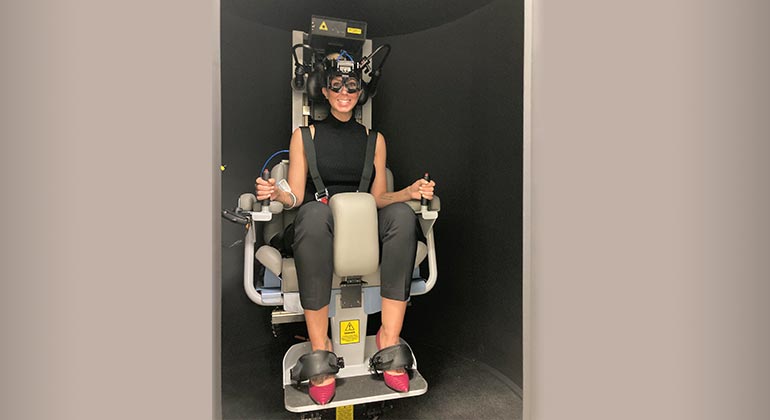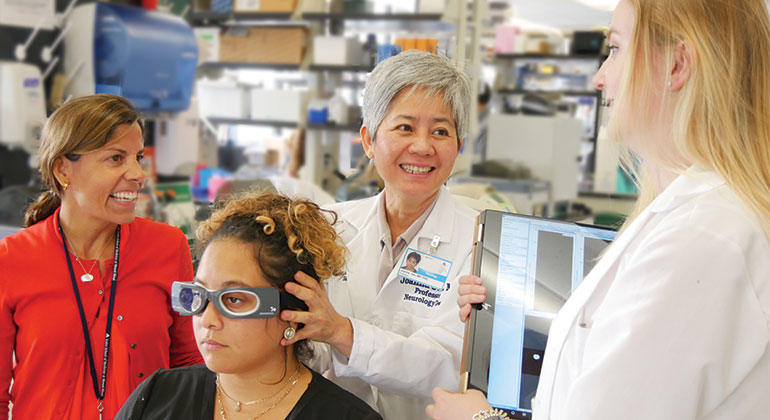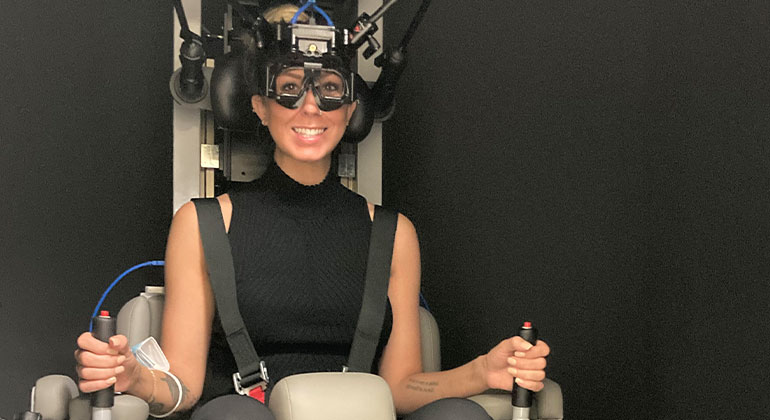Neuro-Otology and Vestibular Neurology


The experts at Mount Sinai provide outstanding care to patients with dizziness and imbalance. Our team of neurologists works closely with otolaryngologists, neurosurgeons, physical therapists, and researchers to diagnose and treat conditions manifesting with dizziness and imbalance. We have a special interest in the genetics of familial and congenital disorders involving the ear and the brain that affect eye movement, coordination, and balance.
Symptoms that we diagnose and treat:
- Dizziness/Vertigo
- Gait/Walking Difficulties
- Imbalance
- Ataxia
- Hearing Loss
Conditions with specific treatments:
- Benign Paroxysmal Positional Vertigo
- Benign Recurrent Vertigo
- Bilateral Vestibulopathy
- Episodic Ataxia
- Hemiplegic Migraine
- Labyrinthitis
- Mal de Debarquement (MdDS) and Motion Sickness
- Meniere’s Disease
- Vestibular Migraine/Migraine-Associated Dizziness
- Vestibular Neuritis
- Vestibular Paroxysmia
Treatment programs
Treatment is individualized based on the diagnosis. Patients may benefit from vestibular rehabilitation developed with close collaboration between the clinicians and the physical therapists.
New patients may fill out this clinical intake form before their appointment. Please fill out and submit by email to dizzy@mssm.edu or by fax to 212-987-3301.
Vestibular Testing

Vestibular testing by videonystagmography (VNG) and rotational testing are commonly performed in patients with dizziness and imbalance with suspected vestibular dysfunction. VNG uses goggles with a video camera to record and quantitatively assess eye movement, which, if abnormal, may reflect dysfunction of the inner ear and/or the brain that may manifest with dizziness and imbalance. Eye movement is recorded with the patient seated and when lying down.
Rotational testing is performed by recording eye movement while the patient is seated in a computer-controlled rotary chair in a dark room. This test is complementary to VNG and especially informative in bilateral vestibular hypofunction and/or central causes of dizziness.
Pre-Testing Instructions for Patients
- Do not wear eye make-up, especially eye liners or false eye lashes, which would interfere with recording
- Do not wear contact lenses
- Do not eat foods for 3 hours before the test
- Have someone accompany you because the test may make you dizzy and nauseated
- Wear comfortable clothing
- Bring a list of medications
- Make sure you clean your ears of ear wax- see your primary care physician or use over-the-counter products at home prior to the VNG appointment